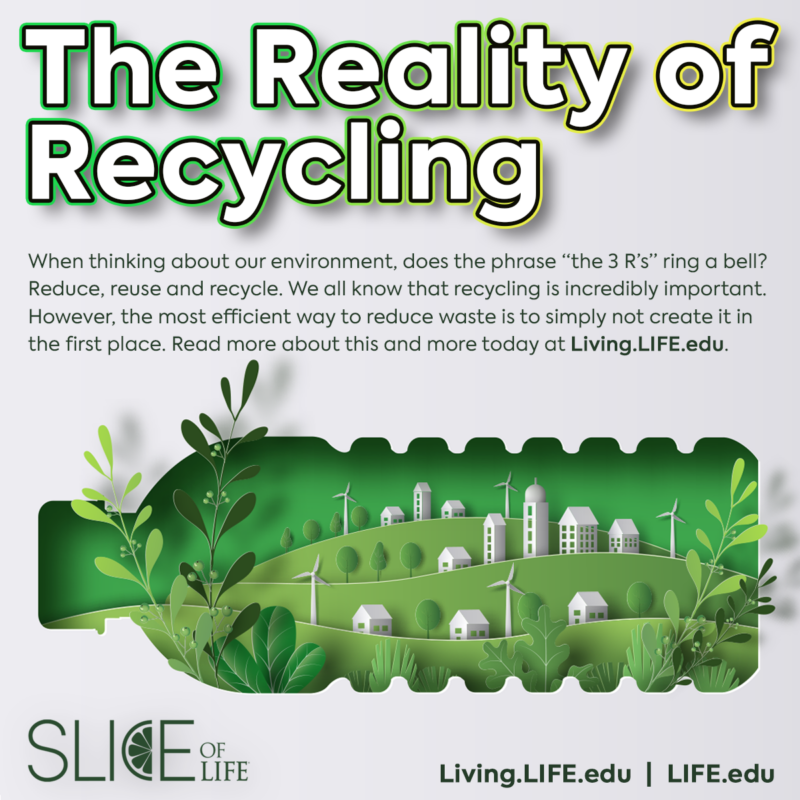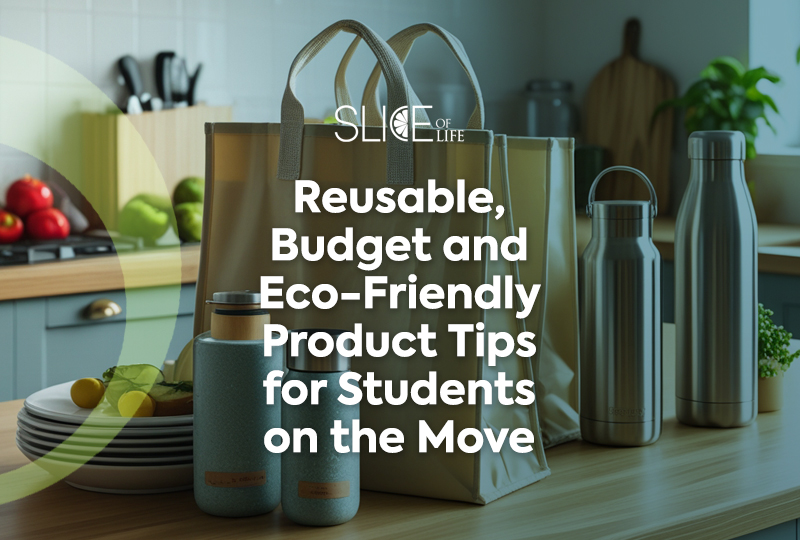Are you feeling the pinch of rising costs but still want to make a positive impact on the planet? You’re not alone.
Many people believe that living an eco-friendly lifestyle requires a hefty budget, but that’s not the case. Imagine making small, sustainable changes that not only help the environment but also save you money. Sounds appealing, right? This isn’t about overhauling your life; it’s about making smart, simple choices that fit seamlessly into your daily routine.
You’ll discover practical tips and tricks that align with your budget while nurturing the planet. Curious about how you can start making a difference today without breaking the bank? Dive into the rest of this article to find out how you can live greener and smarter.

Credit: www.igrad.com
Sustainable Living Basics
Embracing an eco-friendly lifestyle doesn’t mean spending a fortune. Understanding the basics of sustainable living can help you make significant changes without breaking the bank. Small adjustments in daily routines can lead to big impacts on the environment and your wallet. Let’s explore some fundamental practices that can help you live sustainably on a budget.
Reduce, Reuse, Recycle
Start with reducing waste. Buy only what you need. Choose products with minimal packaging. Reuse items instead of disposing of them. Glass jars, for instance, can be repurposed for storage. Recycling is crucial. Sort your waste correctly. Many items can be recycled, saving resources and energy.
Choose Energy-efficient Appliances
Energy-efficient appliances consume less power. They help lower electricity bills. Look for appliances with energy-saving labels. These products are designed to use fewer resources. Investing in them pays off over time.
Opt For Natural Cleaning Products
Commercial cleaners can be costly and harmful. Consider making your own cleaning solutions. Vinegar and baking soda work wonders. They’re cheap and effective. Natural cleaners are better for the environment. They reduce exposure to toxic chemicals.
Adopt A Minimalistic Lifestyle
Less is more. Simplify your life by owning fewer things. Focus on quality over quantity. This reduces waste and saves money. A minimalistic lifestyle encourages mindful consumption. It promotes environmental responsibility.
Grow Your Own Food
Start a small garden. Even a balcony garden can provide fresh produce. Growing your own food reduces grocery bills. It ensures you eat organic and healthy. Gardening is a rewarding and sustainable practice.

Credit: living.life.edu
Budget-friendly Eco-friendly Habits
Embrace a sustainable lifestyle by adopting small changes that save money. Reduce waste with reusable items. Conserve energy by unplugging devices. Choose public transportation or carpooling for cost-effective travel. These habits promote an eco-friendly life without breaking the bank.
Living an eco-friendly lifestyle on a budget is possible. Small changes make a big difference. Adopting budget-friendly habits benefits both the environment and your wallet. Making these changes doesn’t require expensive solutions. Affordable and practical steps can lead to a greener life. Here are some cost-effective habits to try.
Energy-saving Techniques
Unplug devices when not in use. This simple habit saves energy. Consider using energy-efficient bulbs. They last longer and consume less power. Keep curtains open during the day. Natural light reduces the need for artificial lighting. Use fans instead of air conditioners when possible. Fans use less electricity. Lower your thermostat in winter and raise it in summer. Small adjustments lead to big savings.
Water Conservation Ideas
Fix leaky faucets promptly. Even small drips waste gallons of water. Take shorter showers to conserve water. Install a low-flow showerhead. It reduces water usage without sacrificing pressure. Turn off the tap while brushing your teeth. This simple action saves water. Use a broom to clean driveways. Avoid using a hose for outdoor cleaning tasks.
Waste Reduction Strategies
Start composting food scraps. Composting reduces landfill waste. Reuse jars and containers for storage. They replace single-use plastics. Buy in bulk to minimize packaging waste. Choose reusable bags for shopping. They are durable and reduce plastic waste. Recycle whenever possible. It keeps materials out of landfills.
Green Shopping Tips
Discover eco-friendly shopping tips that save money. Choose second-hand items, reduce plastic use, and buy local produce. Simple changes lead to a greener lifestyle without breaking the bank.
Embarking on a journey to live an eco-friendly lifestyle doesn’t have to break the bank. In fact, it can be surprisingly affordable and fulfilling with a few smart shopping strategies. Whether you’re a seasoned environmentalist or just starting out, these green shopping tips will help you make sustainable choices without overspending.
Thrift And Secondhand Shopping
One of the most budget-friendly ways to live green is by shopping at thrift stores and secondhand shops. You can find everything from clothing to furniture at a fraction of the cost. Not only do you save money, but you also reduce waste by giving items a second life.
Imagine finding a vintage jacket or a unique piece of decor that’s both stylish and sustainable. By choosing secondhand, you’re supporting a circular economy. Plus, you get the thrill of discovering hidden treasures, all while being kind to the planet.
Eco-friendly Product Choices
When buying new, opt for products that are eco-friendly. Look for items made from sustainable materials like bamboo or recycled plastic. Brands that prioritize ethical practices often provide great quality at reasonable prices.
Check labels for certifications like Fair Trade or Organic. These indicate products that are made responsibly. By choosing these options, you’re supporting companies that care about the environment and fair labor practices.
Diy Alternatives
Get creative and try making some products yourself. DIY options are not only cost-effective but also allow you to control what goes into them. You can easily make household cleaners, skincare products, or even gifts.
Consider using ingredients you already have at home. Vinegar, baking soda, and essential oils can transform into effective cleaning solutions. It’s rewarding to know exactly what’s in your products and to see the savings add up.
How do you incorporate green shopping tips into your lifestyle? Would you consider thrifting or trying a DIY project? Embrace the change and make eco-friendly choices that fit your budget. You might be surprised at how easy and fulfilling it can be.
Affordable Home Improvements
Transforming your home into an eco-friendly haven doesn’t have to break the bank. Affordable home improvements can significantly reduce your carbon footprint while saving money in the long run. Imagine making small changes that lead to lower energy bills and a healthier planet. Let’s dive into some practical steps you can take to create a sustainable home without overspending.
Energy-efficient Appliances
Have you ever considered how much energy your old appliances consume? Swapping them for energy-efficient models can make a huge difference. Look for appliances with the Energy Star label. These items use less electricity, cutting down on your monthly bills. Plus, many utility companies offer rebates or discounts for purchasing these appliances. It’s a win-win situation for both your wallet and the environment.
Insulation And Weatherproofing
How much energy do you waste on heating and cooling your home? Improving insulation and weatherproofing can drastically reduce energy loss. Simple fixes like sealing windows and doors can keep your home comfortable year-round. You can also add insulation to attics or walls, which is surprisingly affordable. This not only saves energy but also adds value to your home.
Low-cost Solar Solutions
Have you ever thought solar power was out of reach? Think again. Low-cost solar solutions are more accessible than ever. Start small with solar garden lights or chargers for your devices. Gradually expand to larger systems as your budget allows. Some communities even offer solar co-ops to help reduce costs. Embracing solar energy can be a practical step toward a sustainable lifestyle.
So, what small steps will you take to improve your home? Remember, every little change can make a significant impact. By choosing affordable home improvements, you’re investing in a greener future for both yourself and the planet. What’s stopping you from taking the first step?
Transportation On A Budget
Transportation choices significantly impact the environment. Many eco-friendly options exist that save money. Let’s explore budget-friendly transportation methods. These methods reduce carbon footprints and expenses.
Public Transit Benefits
Public transit is an affordable option. It reduces your carbon footprint. Buses and trains use less energy per passenger. They help decrease air pollution. Public transit often costs less than driving a car. Monthly passes save money and offer unlimited rides.
Carpooling And Ride-sharing
Carpooling cuts down on fuel costs. It reduces the number of cars on the road. Sharing a ride with others saves money and reduces emissions. Apps make finding ride-sharing partners easy. These services often cost less than traditional taxis.
Biking And Walking
Biking is a cost-effective transportation method. It provides exercise and reduces pollution. Many cities offer bike lanes for safety. Walking is another eco-friendly option. It costs nothing and benefits health. Short trips are perfect for walking or biking.

Credit: living.life.edu
Sustainable Eating On A Budget
Sustainable eating is a key part of living an eco-friendly lifestyle. Many believe it is costly, but that is not always true. Eating sustainably on a budget is possible with smart choices and planning. Simple changes in your diet can benefit the planet and your wallet.
Plant-based Meals
Plant-based meals are affordable and earth-friendly. Beans, lentils, and grains are budget-friendly staples. They provide protein without the high cost of meat. Try making soups, stews, or stir-fries with these ingredients. Eating less meat reduces your carbon footprint. It also promotes better health.
Local And Seasonal Produce
Buying local and seasonal produce saves money and supports local farmers. Seasonal fruits and vegetables are cheaper and more flavorful. Farmers’ markets often have fresh, affordable options. You can also join a community-supported agriculture program. This way, you get fresh produce regularly at a reasonable price.
Reducing Food Waste
Reducing food waste helps save money and the environment. Plan meals for the week to avoid buying extra food. Use leftovers creatively to make new dishes. Store food properly to keep it fresh longer. Compost food scraps to enrich your garden soil. Small steps can make a big difference.
Community Involvement
Engaging in community activities can make eco-friendly living affordable. Share tools, resources, and tips with neighbors. Participate in local swap events and workshops to learn sustainable practices without spending much.
Living an eco-friendly lifestyle doesn’t have to be expensive or complicated. One of the most effective ways to make a positive impact on the environment is through community involvement. By engaging with your local community, you can discover cost-effective ways to embrace sustainability. Plus, you’ll meet like-minded individuals who share your values and can support your journey. Community involvement not only strengthens your commitment to an eco-friendly lifestyle but also enhances your sense of belonging. Ready to see how you can make a difference?
Joining Local Initiatives
Many communities offer local initiatives aimed at promoting sustainability. These can include community gardens, recycling programs, or even neighborhood clean-up events. Participating in these activities not only helps the environment but also connects you with your neighbors.
Imagine the satisfaction of planting your own vegetables in a community garden. Not only do you save money on groceries, but you also reduce your carbon footprint. Plus, you’ll gain gardening tips from seasoned green thumbs in your community.
Consider attending local government meetings focused on environmental issues. These gatherings can provide valuable insights into upcoming projects or policies that support eco-friendly living. Your voice matters, and your involvement can inspire others to take action.
Supporting Eco-friendly Businesses
Choosing to support local eco-friendly businesses is another impactful way to live sustainably. Many small businesses are dedicated to reducing their environmental impact by offering products that are organic, recycled, or sustainably sourced. By purchasing from these businesses, you encourage more environmentally responsible practices.
Look for local farmers’ markets or stores that specialize in sustainable products. Buying fresh, local produce not only helps the environment but also supports your local economy. You’ll find that many eco-friendly products are affordable and of high quality.
You could also consider switching to local renewable energy providers if available. This choice can often be more economical in the long run and helps reduce reliance on fossil fuels. Have you checked if green energy options are accessible in your area?
Volunteering Opportunities
Volunteering is a powerful way to contribute to environmental sustainability without spending a dime. Many organizations offer opportunities to volunteer for eco-friendly causes, such as tree planting, wildlife conservation, or educational workshops.
Have you ever spent a weekend planting trees or cleaning up a local park? These experiences not only benefit the environment but also provide a sense of accomplishment. Plus, they’re a great way to spend time outdoors and meet new people.
Volunteering can also open doors to learning new skills. Many organizations provide training, which can be useful for personal growth or even career opportunities. What skills could you develop while making a positive impact on the planet?
By getting involved in your community, you can live an eco-friendly lifestyle on a budget. Take small steps today, and watch how they add up to make a big difference.
Frequently Asked Questions
How To Start An Eco-friendly Lifestyle?
Begin by reducing waste and using reusable products. Choose sustainable brands and support local, eco-friendly businesses. Practice energy conservation and opt for public transportation or biking. Grow your own food or buy from local farmers. Embrace minimalism and prioritize experiences over material possessions.
What Are Five Eco-friendly Habits?
Reduce waste by recycling and composting. Use reusable bags, bottles, and containers. Conserve energy by turning off lights. Choose sustainable transportation like biking or walking. Support local and organic food sources.
What Is The Most Environmentally Friendly Way To Live?
Live sustainably by reducing waste, conserving energy, and opting for eco-friendly products. Choose renewable energy sources and plant trees. Use public transportation, cycle, or walk to reduce carbon footprint. Embrace minimalism and support local, organic foods. Educate others on environmental issues to foster a greener community.
How Can I Be 100% Eco-friendly?
Achieving 100% eco-friendliness requires lifestyle changes. Use renewable energy, reduce waste, buy sustainable products, and support green initiatives. Prioritize recycling, composting, and water conservation. Embrace minimalism and plant-based diets. Stay informed about environmental issues and make conscious decisions daily. Remember, every small effort contributes to a healthier planet.
Conclusion
Living eco-friendly on a budget is achievable. Small changes make a big impact. Opt for reusable bags. Choose local produce. Save energy with smart choices. Reduce waste by recycling. Grow your own herbs. Use public transport more often. Swap clothes with friends.
Embrace minimalism. These steps help the planet and your wallet. Remember, every effort counts. Start today and make a difference. Your actions inspire others. Together, we can protect our environment. Enjoy the journey. Eco-friendly living is rewarding. Feel good about your choices.
Sustainable habits lead to a healthier world. Keep going!
